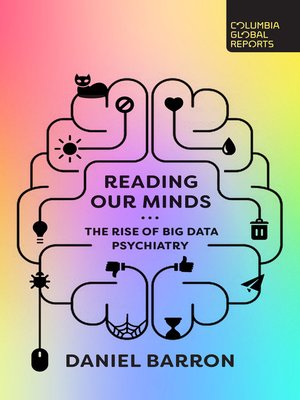
Sign up to save your library
With an OverDrive account, you can save your favorite libraries for at-a-glance information about availability. Find out more about OverDrive accounts.
Find this title in Libby, the library reading app by OverDrive.



Search for a digital library with this title
Title found at these libraries:
| Library Name | Distance |
|---|---|
| Loading... |
What is psychiatry and how can we improve it?
In the last hundred years, most of the medical sciences have progressed in immense and unforeseeable ways—except for psychiatry, which has somehow remained immune to this progress. Daniel Barron, a psychiatrist who trained at the Yale School of Medicine, asks an important question: What's holding psychiatry back?
Reading Our Minds takes us to a psychiatric hospital, where Barron evaluates a young woman with psychosis, and shows how his exam is limited by his own ability to ask questions and observe, and by his patient's ability to sense, interpret, and report her experience. Barron shows why psychiatry must move beyond conversation—and how sensors, measurements, and algorithms might progress psychiatric practice. At once pioneering and engaging, Reading Our Minds introduces readers to the Big Data technologies that might revolutionize the way we evaluate, diagnose, and treat mental illness and bring psychiatry firmly into the fold of 21st-century medical science.
In the last hundred years, most of the medical sciences have progressed in immense and unforeseeable ways—except for psychiatry, which has somehow remained immune to this progress. Daniel Barron, a psychiatrist who trained at the Yale School of Medicine, asks an important question: What's holding psychiatry back?
Reading Our Minds takes us to a psychiatric hospital, where Barron evaluates a young woman with psychosis, and shows how his exam is limited by his own ability to ask questions and observe, and by his patient's ability to sense, interpret, and report her experience. Barron shows why psychiatry must move beyond conversation—and how sensors, measurements, and algorithms might progress psychiatric practice. At once pioneering and engaging, Reading Our Minds introduces readers to the Big Data technologies that might revolutionize the way we evaluate, diagnose, and treat mental illness and bring psychiatry firmly into the fold of 21st-century medical science.







